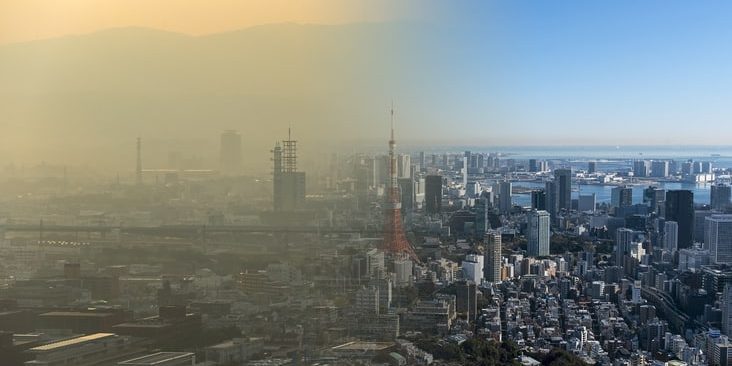A residential air filter works using mesh materials that trap tiny particles as air blows through it. This type of filter is also known as a media filter. Typically, air filters are installed near the indoor unit of your furnace, air conditioner, or heat pump. All of the air supplied flows through the filter before being pumped into the rooms of your home via the ductwork.
Over time, the filter traps enough dust, dirt, and other particulates that it will inhibit the airflow. This is why filters should be checked routinely and replaced or cleaned when they are dirty.
Besides media filters, electronic filters provide a more sophisticated filtering performance. Like media filters, electronic filters use an electronic charge to attract and capture particulates.
The primary function of air filters is to keep the inside of your HVAC unit, so it can continue to operate efficiently. It does this by capturing most airborne particulates and air pollutants.
Most HVAC filters do their job quite well, but not all are created equal. Air filters with higher MERV (minimum efficiency reporting value) ratings filter out smaller particles (below 2.5 microns) than those with lower ratings.
Since the air filter is capturing dust, dirt, and other airborne particles, that means they are not being distributed throughout your home. Just think about it– if you did not have an air filter, every time your HVAC system turned on, you’d have dust billowing out of your duct. In actuality, the dust likely wouldn’t be visible to the naked eye, but you’d undoubtedly have to dust your furniture every day to keep your home clean.
Air filters ensure your HVAC system does not get clogged with dust and dirt. Furnaces, air conditioning units, and heat pumps work best when they are clean and uninhibited from a buildup of dirt and dust.
For example, a furnace can transfer heat better when the burner and heat exchanger is clean. Additionally, a blower will use less energy to move the air if the fan blades aren’t weighed down with a layer of dust.
To summarize, air filters help your HVAC stay efficient, which in turn lowers the electricity or gas it uses to heat and cool your home. Therefore, with a properly maintained air filter, you can reduce your monthly energy bills.
Sometimes air filters alone are not enough to filter the air in your home. Perhaps you live in an area with high outdoor air pollution, have lots of pets, your cooking produces a lot of smoke, or your home just produces a lot of dust and indoor air pollution.
Whatever the case may be, your HVAC filter might not be able to keep up.
Most HVAC systems (furnaces, central air conditioners, and air-source heat pumps) work with air filters with a MERV 13 rating with no issues. However, if you use a filter with a MERV rating higher than 13, you can create equipment issues if the filter replacement goes too long.
It is often difficult to determine what MERV rating your HVAC system will work with, as filter recommendations are not commonly labeled on the unit. If you have any doubts on what type of filter is compatible with your HVAC system, give our team of HVAC experts a call for assistance.
In the case that your HVAC system does not work with a high MERV rating, and you want to improve your air quality, you have no recourse in using a better filter. However, you can use an air purifier to help.
Perhaps your home does not have a central HVAC system. It might not have ductwork at all, and you cool and heat select rooms with mini-split heat pumps, window AC units, portable air conditioners, or space heaters.
In this case, all of these smaller-sized HVAC systems feature few filtering capabilities. Sure, you can pull out the filter of your mini-split unit or window air conditioner and clean it, but they are generally tiny and don’t capture as many particulates as a MERV 13 filter would.
If you have one of these heating and cooling systems, you may have to treat the air in your home with an air purifier.







